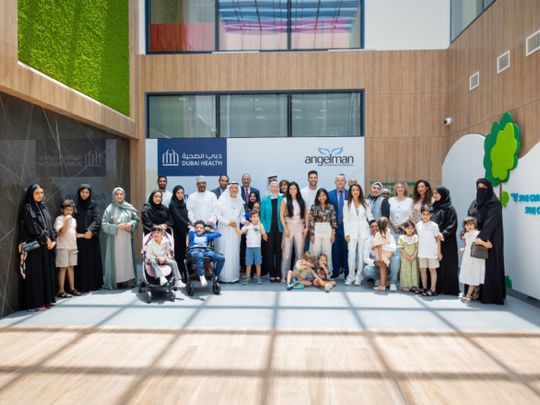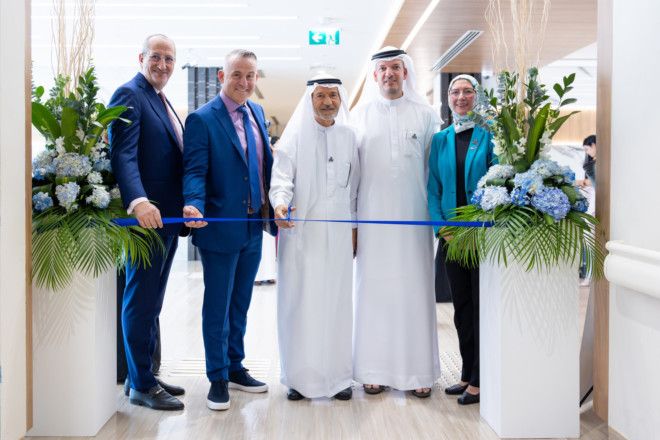
Dubai: For the first time in the GCC, Dubai has launched an exclusive clinic for individuals who are ‘always happy and smiling’ due to a rare genetic disorder called Angelman Syndrome (AS).
Dubai Health, the first integrated academic health system in Dubai, has partnered with the US-based Angelman Syndrome Foundation to establish the dedicated clinic at Al Jalila Children’s Hospital.
“This is the first-of-its-kind clinic in the region and aims to improve care for patients with Angelman Syndrome and raise awareness of this rare neurological disorder. The clinic will provide a supportive community hub where patients, families and caregivers can connect with experts and receive the best evidence-based care, bridging a gap in healthcare for those living with this condition,” Dubai Health said.
The partnership with the Angelman Syndrome Foundation represents new hope for individuals and families living with this rare neuro-genetic disorder in line with the Patient First promise, it pointed out.
Rare condition
Affecting approximately one in 500,000 people worldwide, the early symptoms of Angelman Syndrome include a significant delay in obtaining developmental milestones such as walking within the first 12 months. Other clinical findings include speech delay, movement or balance disorder and often present with an apparent happy demeanour with frequent laughter and excitability.

Specialist care
The clinic will provide families in the UAE access to specialist healthcare professionals and evidence-based care while also enhancing future treatment through the power of Dubai Health’s integrated academic health system. Through harnessing the education and research that takes place within Dubai Health, this partnership aims to significantly improve the lives of patients and their families.
Dr Abdulla Al Khayat, CEO of Al Jalila Children’s Hospital, said: “ This crucial partnership is a beacon of hope for patients and families affected by this rare condition. By ensuring that we deliver the highest standard of care and driven by our Patient First promise, we hope to empower Angelman Syndrome patients and their families to lead fulfilling lives.”
Amanda Moore, CEO of the Angelman Syndrome Foundation, said: “This clinic will offer families in the UAE access to professionals with deep knowledge of Angelman Syndrome, expertise that has traditionally been challenging to locate.”
Raising awareness of rare conditions like Angelman Syndrome is crucial for early diagnosis and better patient outcomes, Moore pointed out.
What is Angelman Syndrome?
Angelman Syndrome is a rare neuro-genetic disorder that occurs in one in 15,000 live births (or 500,000 people worldwide). Common signs and symptoms, include significant motor delays that become significant by 12 months of age, delayed walking with balance issues and an unsteady gait, seizures, absent speech and an apparent happy demeanour with frequent laughter and excitability.
The gene that is associated with Angelman syndrome is UBE3A. Everybody has two copies of UBE3A, one from our mother and one from our father, for people with Angelman syndrome, there is a problem with UBE3A gene from the mother. It is important to note that mothers of children with Angelman syndrome did nothing to cause the problem with the UBE3A gene, it is a spontaneous occurrence that occurs in 1 in 15,000 births.
Currently, there is no cure for Angelman syndrome and treatment is focused on the associated clinical findings which is why it is important to follow up with the necessary specialists.
It is caused by a loss of function of the UBE3A gene in the 15th chromosome derived from the mother. It shares symptoms and characteristics with other disorders including autism, cerebral palsy and Prader-Willi syndrome. It has no cure.












